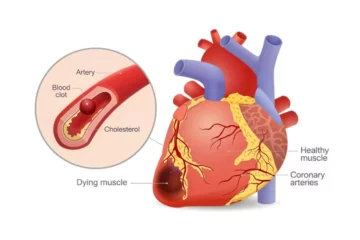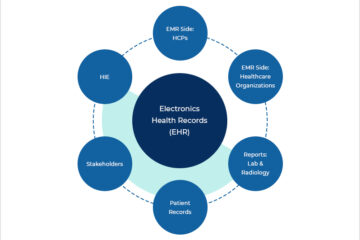
In 2015, Aanchal (name changed) was told by her doctor that she was suffering from clinical depression. A severe mental illness (mind that illness is not same as disorder), that made her go through one of the toughest times of her life.
Having friends around did not make things any easier for Aanchal. In fact, her condition turned severe because she couldn’t even explain her mental condition to the people close to her during that time. Even as a topic, depression had never featured in her circle until it struck her. It was a lone battle for her. But worse was the pity that she saw in people’s eyes.
“I didn’t want people to look at me with sympathetic eyes because I was suffering from depression. Forget discussions, we can’t even talk openly about depression as people start naming you pagal (mad), or say, look! She is a retard,” she said.
But Aanchal is just one among the millions of people suffering from depression globally.
According to a World Health Organisation (WHO) report, over 300 million people are, currently, living with depression. This, in fact, reflects an increase of 18 per cent over the numbers in 2005. What is concerning is that depression causes rapid increase in ill health, mental disorder and suicide cases.
A WHO report mentioned that around 800 000 people die due to suicide every year, and this has become second leading cause of death among 15-29-year olds.
Interestingly, the health body has gone beyond just churning the numbers for the public. To raise awareness among the public about mental illness, WHO has dedicated its 71st anniversary on April 7, 2017 to depression. Its theme – ‘Depression: Let’s Talk’ for World Health Day 2017 is an attempt to raise a voice against the social taboo surrounding the word depression; talk openly about it, seek help and get help for anybody going through it.
“The continuing stigma associated with mental illness was the reason we decided to name our campaign Depression: let’s talk,” said Dr Shekhar Saxena, Director of the Department of Mental Health and Substance Abuse at WHO in a statement.
Let’s talk depression now!
WHO explains that depression is a common mental disorder, characterised by sadness, loss of interest or pleasure, feelings of guilt or low self-worth, disturbed sleep or appetite, feelings of tiredness, and poor concentration. It can be long-lasting or recurrent. At present, lack of discussions on depression, anxiety or prolonged sadness is what is making it difficult for people to get diagnosed and timely treatment.
Noted psychiatrist Dr Kushal Jain at Centre For Behavioural Sciences, New Delhi, rightly pointed out: “What is missing right now is that a person with depression do not know whom to consult or talk to? Education on depression at all level is what is important and the need of the hour.”
“India’s rate of depression is almost 7.5 per cent, but this 7.5 per cent people are in immediate need of medical help. There are millions sitting miles away from us. It could be distraught farmers, young helpless people, wives, old-aged, men, women, anybody. We need to reach them at earliest and speak on this at regular basis,” Dr Jain said.
Another expert explains how minimal or no communication on depression is self-destructive. Simar Omkar, Director, Great LIFE-Applied Psychology Services, Chandigarh, said, “Often sadness is misunderstood for depression due to lack of awareness and discussion on this problem. Both are different conditions. My first most advice would be that do not self diagnosed and do not self medicate.”
Dr Omkar also explained that only holistic approach could help diagnosing and treating depression among people. “Once diagnosed, depression can be treated with nutritious diet, good sleep, exercises, combined with counselling, ayurvedic/homeopathy therapy and modern medicines. Depression also depends from person to person as it has many stages-mild to severe,” he said.
Lack of awareness is not solely responsible for rapid increase in depression worldwide, even the existing medical facilities are not well equipped with latest medical findings, discoveries or have adequate psychiatrists to tackle mental illness. As per a survey, India is short of 66,200 psychiatrists.
When asked about the existing situation among India’s hospitals, clinics or doctors for mental illness, Dr Gitanjali Natarajan, who is the Head of Department at the Department of Clinical Psychology, Amrita Institute of Medical Sciences, Kochi, replied: “Primary health centers and highly equipped hospitals alike give poor consideration and value to psychological interventions. Often, unqualified people or lay counselors are allocated the duty of screening and managing depression. This results in more damage than benefit in the long run.”
While many celebrities have come out open about their struggles with depression and emerged stronger than ever, the common man, perhaps, is still fighting a lone battle. Which indication is seen in the rise of suicides among farmers, students, young couples, and even stars.
As the saying goes, depression is the common cold of psychological disorders. Depression is a sensitive issue that seeks utmost care to handle it by medical professionals as well friends and families. Talk depression to understand depression today. Help yourself or someone who is going through this illness. It is indeed curable!
[“source-thestatesman”]



